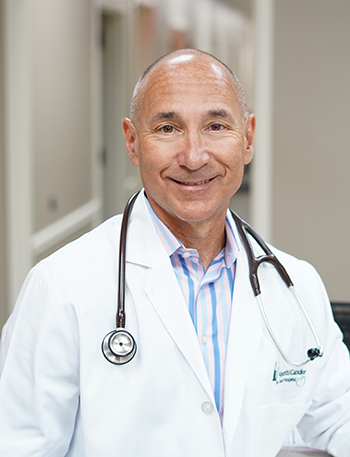What causes Atrial Fibrillation?
Heart Health
Normally, your heart contracts and relaxes to a regular beat. However, for at least 2.7 million Americans living with Atrial Fibrillation it’s more complicated than that.
Atrial Fibrillation (also called AFib or AF) is a condition in which the upper chambers of the heart (the atria) experience erratic impulses which cause the atria to beat irregularly or quiver (usually rapidly). This effects blood flow from the heart and can create a variety of health risks including blood clots, stroke, heart failure, other heart-related complications and even death.
While AFib can occur for a variety of reasons, even in otherwise healthy people, there are several common risk factors.

"One of the most important issues about atrial fibrillation is that it significantly increases a persons risk for stroke," says Dr. Michael Chisner, cardiologist and electrophysiologist with Cardiology Associates of Savannah and the Advanced Heart Rhythm Center at St. Joseph’s/Candler. "The best things people can do in general are lose weight because fat is a significant heart irritant and can be a big factor in AFib, as well as stop smoking and exercise."
Here’s a breakdown of some of the preventable and non-preventable common reasons why AFib occurs:
High blood pressure (hypertension)
High blood pressure is one of the most common causes of atrial fibrillation. High blood pressure itself can be caused by a wide range of factors including obesity, diet, stress, sleep apnea and other causes. Taking steps to reduce blood pressure is a great way to reduce the risk of AFib.
Coronary artery disease
Coronary artery disease is a condition in which plaque builds up in the coronary arteries over time, affecting oxygen levels and blood flow to the heart. The risk of coronary artery disease, and by extension AFib, can be reduced with a healthy diet and exercise to reduce fatty buildup in the arteries.
Smoking, alcohol and/or caffeine use
Consistent overindulging in any of these substances can cause atrial fibrillation. Consequently, moderating or eliminating these habits can also reduce the risk.
Viral or bacterial infections (especially in the chest/lungs)
A number of different types of infections in the chest area can trigger AFib, perhaps the most common of which is pneumonia. Obtaining timely treatment for these types of infections can lower the risk of triggering AFib.
Hyperthyroidism
An overactive thyroid gland can cause metabolic imbalances which can trigger AFib. Treating and managing this condition can lower the risk as well.
Congenital heart issues
Sometimes, atrial fibrillation occurs as an indirect result of a defect from birth, such as congenital heart defects, deformed heart valves or similar conditions.